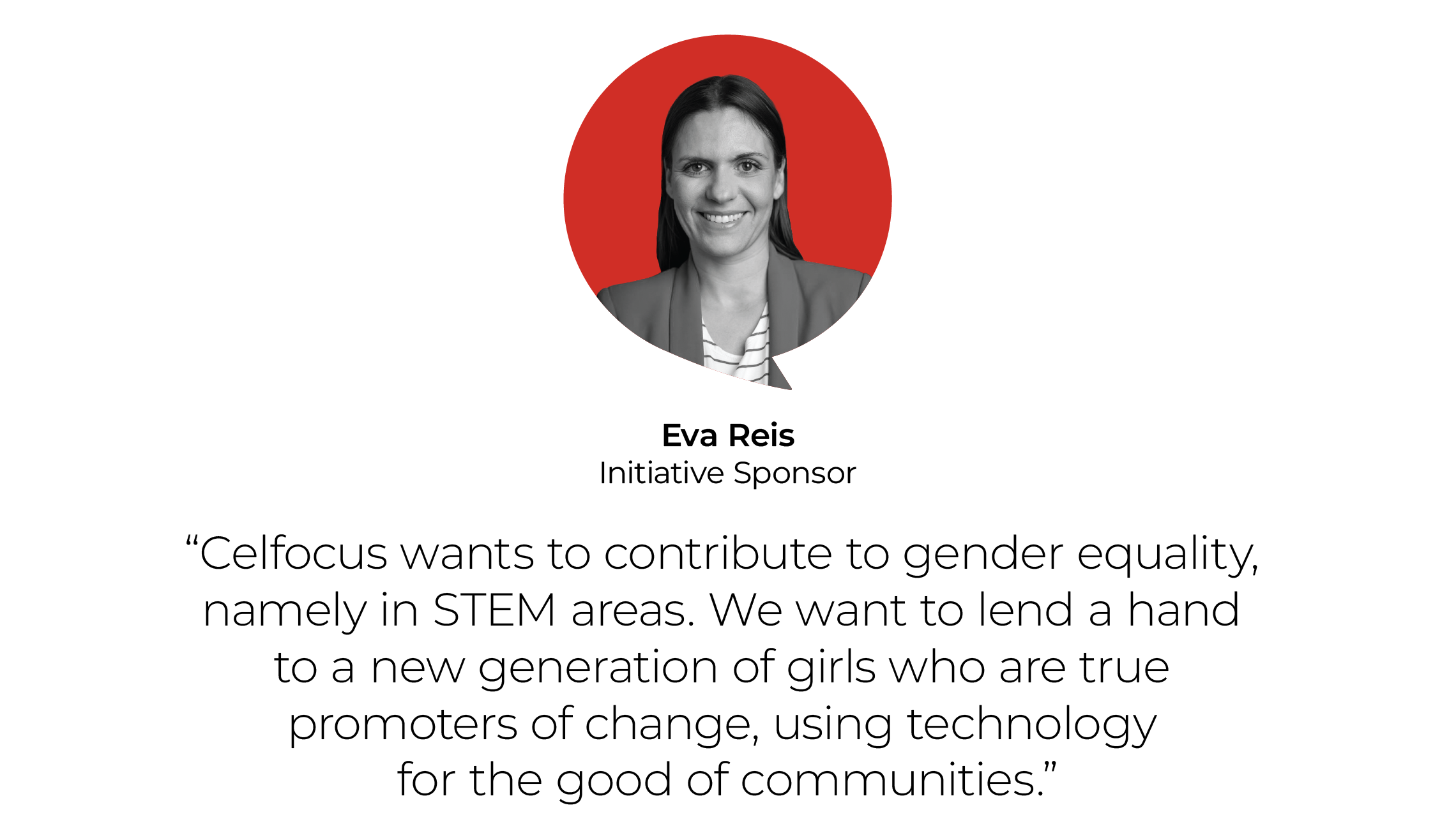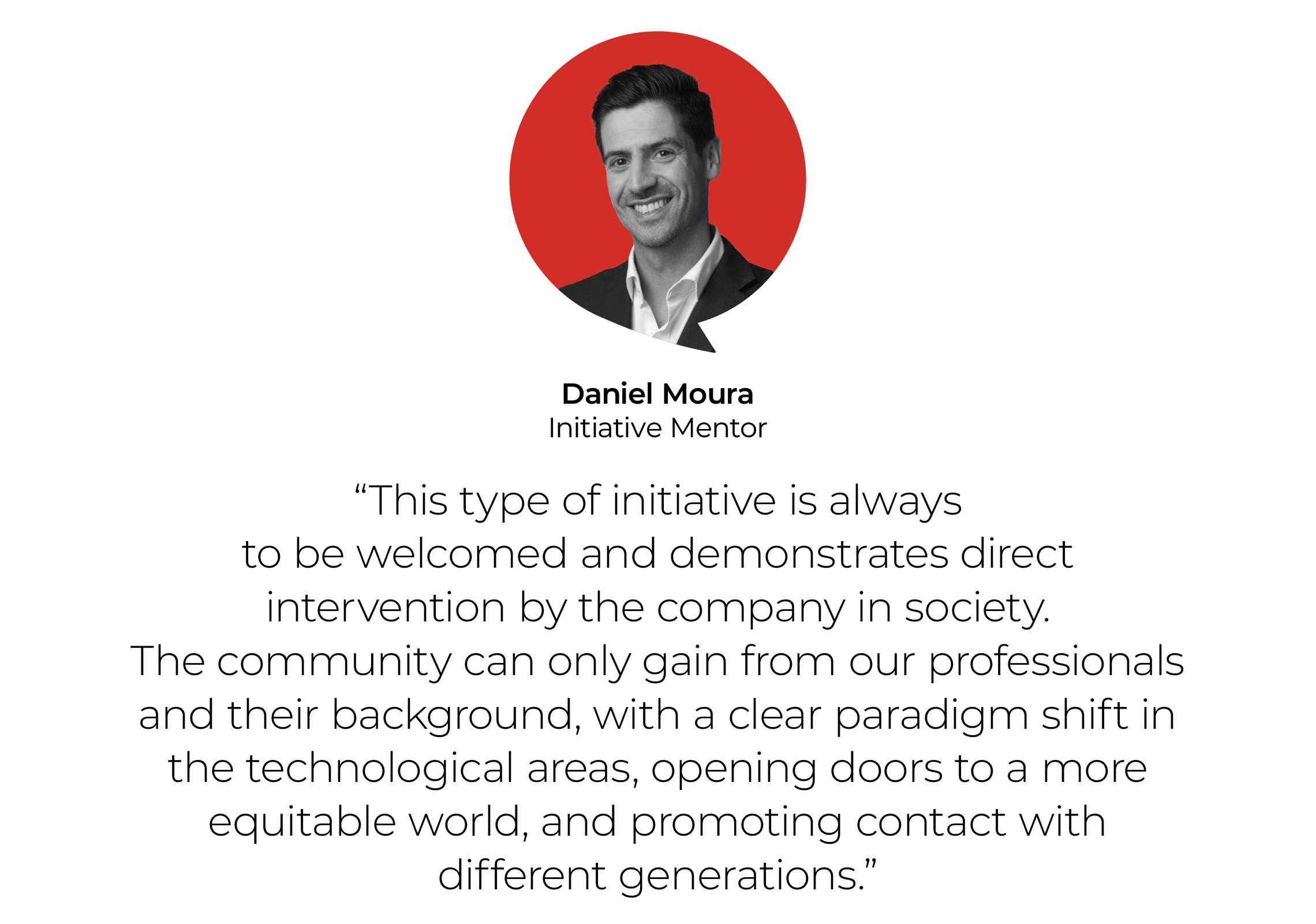Positive impact
Technovation Girls
Promoting entrepreneurship and citizenship through technology.
Technovation Girls, now supported by Celfocus, is a technology education program that empowers girls between the ages of 8 and 18 to become leaders in identifying and creating solutions to community problems. Celfocus is committed to contributing to training and education in the STEM area (Science, Technology, Engineering, and Mathematics), a bet that is part of the company's broader strategy, which aims to positively impact the community, promoting entrepreneurship and citizenship through technology.
Technovation, created in the United States and present in more than 120 countries, involves recognised professionals, with different levels of experience, who voluntarily share their knowledge with young girls, who have access to knowledge that will be decisive in their lives. Celfocus got involved in this project with a commitment to contribute to the community, supporting young people in training. We selected a group of mentors from our employees to become involved in monitoring and training these young women, believing that the mission of Celfocus goes far beyond the products or services we offer to our customers.
For example, Daniel Moura, one of the Celfocus mentors who helped develop an app to support people who suffer from gender discrimination, defends the added value of this project.
